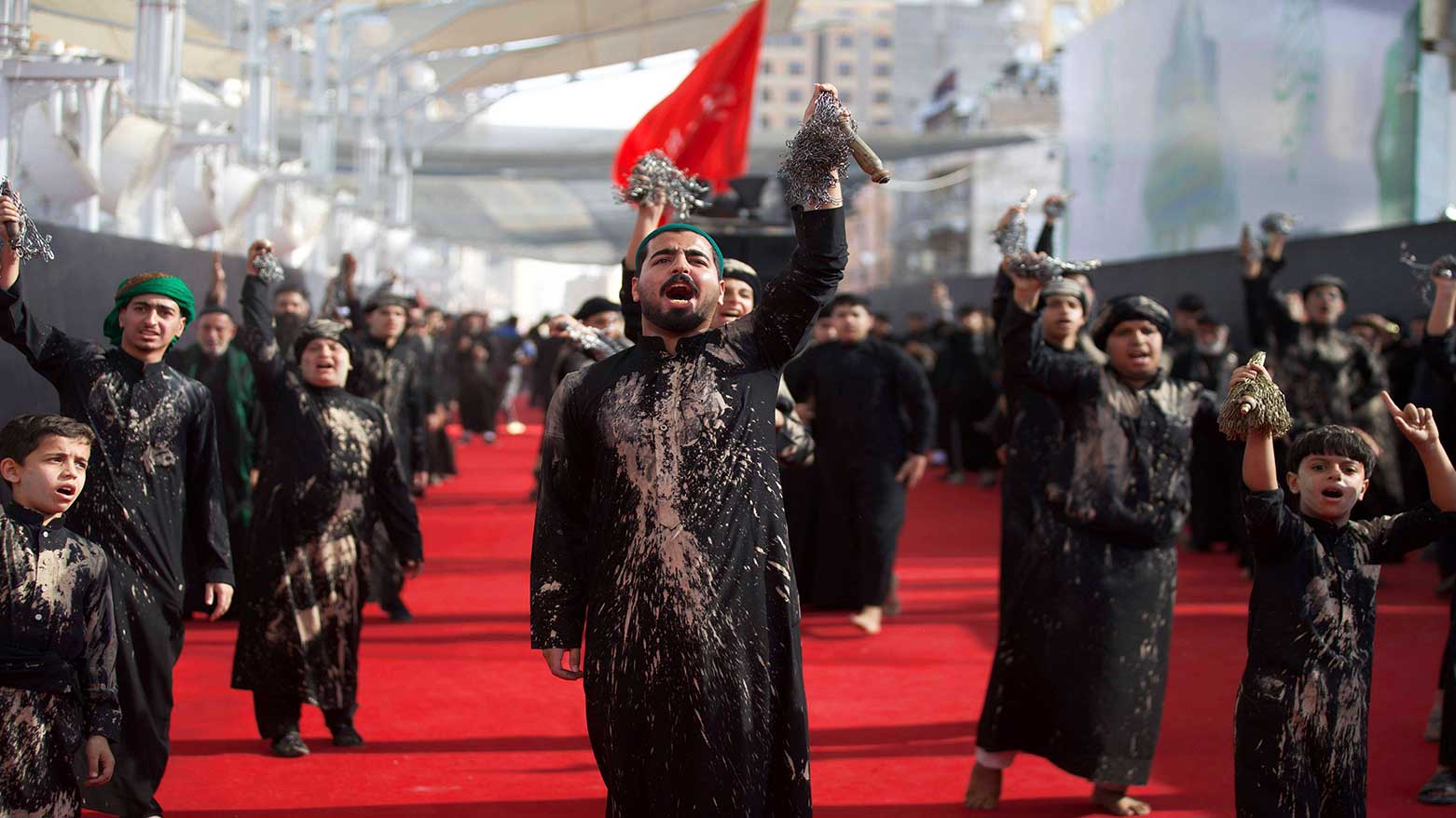Iraq Boosts Security in Karbala Ahead of Ashoura Amid Debate Over Armed Militias
“The resistance’s weapons are what protected Iraq, and they will not be surrendered—no matter how great the internal or external pressure,” Abu Ali al-Askari, spokesperson for the Iran-backed Kataib Hezbollah militia—part of the PMF, stated, using the Ashoura platform.

ERBIL (Kurdistan24) — Iraqi Interior Minister Abdul Amir al-Shammari arrived in Karbala on Saturday to oversee heightened security operations ahead of Ashoura, amid mounting concerns over potential extremist attacks and growing national debate over the role of Iran-aligned militias operating under the Popular Mobilization Forces (PMF), according to the Associated Press (AP).
Al-Shammari chaired an extended meeting at the city’s operations command headquarters with senior military, intelligence, and PMF officials to coordinate security plans for the massive Shiite pilgrimage. The Iraqi Interior Ministry said the meeting focused on tightening access to Karbala, increasing surveillance, and intensifying field intelligence to safeguard the hundreds of thousands of pilgrims expected to gather for the religious commemoration on Sunday.
Ashoura marks the martyrdom of Imam Hussein, the Prophet Muhammad’s grandson, in the 680 AD Battle of Karbala, and is one of the holiest days in the Shiite calendar. While deeply religious in nature, the annual event has historically been targeted by extremist groups such as the Islamic State, who consider Shiites apostates and have carried out deadly attacks on Ashoura gatherings in Iraq and beyond.
This year’s commemorations unfold in a context of heightened regional instability, following the Israel-Iran war, the collapse of Syria’s pro-Iranian regime, and the assassination of Hezbollah leader Hassan Nasrallah. These developments have reenergized debates inside Iraq over the influence of armed factions and the state’s ability to maintain security independently.
Abu Ali al-Askari, spokesperson for the Iran-backed Kataib Hezbollah militia—part of the PMF—used the Ashoura platform to reaffirm the role of resistance groups in Iraq’s security. “The resistance’s weapons are what protected Iraq, and they will not be surrendered—no matter how great the internal or external pressure,” he declared.
His comments come as Iraqi political circles revisit the question of whether groups like Kataib Hezbollah should remain under the PMF's military command structure or be further integrated—or even disarmed—in light of Iraq’s sovereignty and constitutional obligations.
Meanwhile, the Kurdistan Regional Government (KRG) on Saturday strongly criticized the federal Iraqi authorities for what it described as a persistent failure to take responsibility for a series of drone and rocket attacks targeting cities in the Kurdistan Region, launched by militias operating from Iraqi territory.
As Ashoura approaches its peak, Karbala is both a spiritual center and a flashpoint for Iraq’s unresolved questions about security, national authority, and the future of armed groups within its borders.
